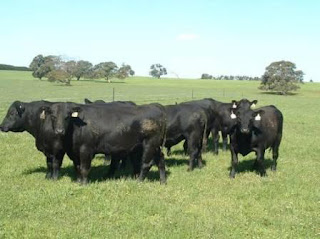I like coffee, I like tea. I like the girls and the girls like me*
*"Java Jive" by the Ink Spots--the one song Dad played on the piano and sang
 |
| Dad (right) on the SS Pennsylvania |
In 1936, when he was 25, my father left Boston and set out for the greener pastures of California at a pivotal time in his life. His father, Arthur William, had died five years earlier and the family had seriously struggled during the economic crisis. It was also a pivotal time in history. The nation was still working through the Great Depression but things were looking up; unemployment had dropped to its lowest rate in five years (16.9 percent), and the newly established Social Security Administration gave people a modicum of hope for a measure of future stability.
Moving to California was a natural choice since my father's family has always been "bi-coastal" with half the family living in California and the other half along the eastern seaboard. Getting there, however, proved to be a challenge. Dad didn't own a car and flying to California was prohibitively expensive so he booked passage with a few friends on the SS Pennsylvania. Owned by the Panama Pacific line, the Pennsylvania sailed from New York to San Francisco with stops in Havana, Panama, San Diego and Los Angeles.
Considering his age, this must have been an incredibly exciting trip for Dad. It was very likely the first time he had ever ventured this far from home and he was doing so without his family. The Pennsylvania--and its destinations--undoubtedly added to the excitement. It was a relatively new ship (less than a decade old), carried 750 passengers (first class and tourist) and boasted a crew of 350. A tourist cabin at the time cost just $125. However, Dad's only comments about the ship--and the trip, for that matter--were limited to how close he came to being left behind in Havana, Cuba.
As he told it, he and his friends were very excited to go ashore and visit Havana when the ship docked en route. The fact that this was his first (and subsequently only) trip abroad must have made the urge to explore completely irresistible. The intrepid trio decided to rent a car and visit some of Havana's more famous sights, including the now legendary Sloppy Joe's bar.
After a satisfying few hours of sightseeing, the three friends headed back to the dock for the ship's impending departure. Driving in Havana in 1936 must have really been something especially with the free-for-all traffic and lack of traffic signals. Unfortunately, Dad and his friends were a little lacking in driving skills and a bit ignorant of the dangers tourists faced abroad. As they wound their way through the streets of the city, they passed a cop who immediately flagged them down.
"Is there a problem, officer?" asked Dad.
"Dame tu licencia de conducir, por favor," said the cop, holding out one hand and rubbing his first two fingers against his thumb.
"I beg your pardon?"
"Dame tu licencia de conducir, por favor," he repeated, a little louder, still rubbing the thumb and fingers of his outstretched hand together.
"I don't understand. Um, oh! No comprender!"
"Dame tu licencia de conducir, por favor!" the cop shouted furiously pantomiming the act of opening a wallet and extracting a few bills.
"We're in trouble," Dad's friend muttered.
"You have no idea," muttered friend number two.
"What did I do?" Dad ask, flustered.
"You stopped," his friends said in unison.
The cop, embarrassed and at a loss for words, now struggled to save face. Dad's limited Spanish and lack of street smarts gave the policeman no choice but to arrest the three of them and charge them with leaving the scene of an accident. According to the cop, the car had grazed his ample belly when they had passed him standing on the curb.
Over the next few hours, Dad and his friends gingerly negotiated for their release. Despite how frivolous they may have seemed, the charges were serious. Those who struck a cop got one year and 29 days in jail. Just arguing with a cop could get you 3 months and 29 day.
Because they were plainly tourists, Dad's friends were released after a few hours. However, thanks to his darker complexion and latin features (courtesy of his grandfather, Sergio Joaquin), Dad was not so lucky. The cops were convinced that he was a Cuban native and that he was trying to flee the country. Ironically enough, it was Dad's inability to communicate with his captors that earned his release in the end. They finally let him go once they decided that no real Cuban could ever speak Spanish so badly.
(Editor's note: the veracity of this little tale may rightfully be questioned since the more I recall it, the more it sounds like an episode of "I Love Lucy!")



